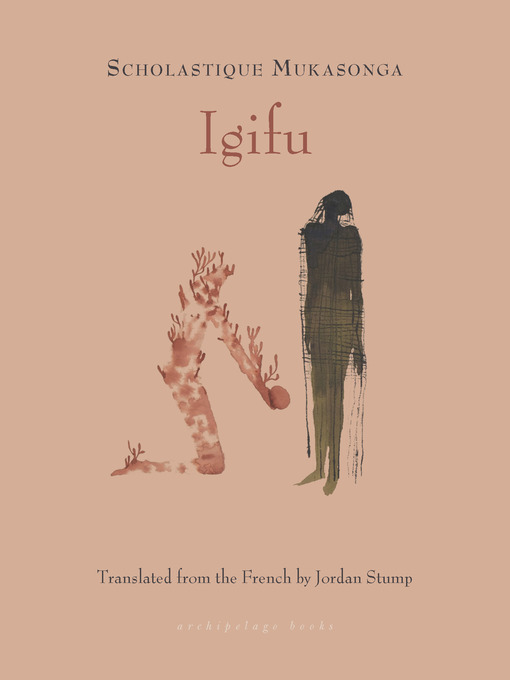
Igifu
کتاب های مرتبط
- اطلاعات
- نقد و بررسی
- دیدگاه کاربران
نقد و بررسی

July 1, 2020
A collection of thematically linked tales of Rwandan life in a time of ethnic conflict. Originally published in French in 2010, these short stories partake of both fiction and memoir. The title story centers on a constant of refugee life, for Igifu is hunger personified, "given to us at birth like a cruel guardian angel." Igifu is kept at bay only by food, of course, and while the parents of the Tutsi narrator did so with abundant milk, now the cows are dead, and, as in Mukasonga's real life, "we'd been abandoned on the sterile soil of...Igifu's kingdom." Although starving, her mother worries that the neighbors will learn that they've been reduced to eating wild radishes, "no food for Tutsis," though she's not too proud to turn to those neighbors when the narrator faints from hunger and approaches the gates of death itself. Mukasonga then shifts genders, relating in a man's voice the cultural realities of a people who measure wealth in cattle (and for whom "cattle stealing was nothing short of a sport") but are reduced to the shameful condition of raising goats. In that story, which spans decades, a young cowherd grows to manhood in exile while his father finally saves enough to buy a cow' a trajectory interrupted by the next spasm of ethnic violence: "The genocide did not spare my father Kalisa, or my mother, or all my family, any more than the other Tutsis of Nyamata. I'll never know what name he gave his one cow. I don't want to know if the killers feasted on her." In another story, a grown-up woman, beautiful, proud, and devoted to fine clothing and makeup, paints herself into an existential corner: The object of a French colonist's desire until independence, then the mistress of a wealthy, politically powerful entrepreneur in Kigali, she becomes just another refugee, reduced to selling herself in the camps. Reminiscent at times of Iris Origo, Mukasonga writes with world-weary matter-of-factness, her stories understated testimonials to the worst of times. Elegant and elegiac stories that speak to loss, redemption, and endless sorrow.
COPYRIGHT(2020) Kirkus Reviews, ALL RIGHTS RESERVED.

Starred review from July 6, 2020
French Rwandan writer Mukasonga’s superb collection (after the memoir The Barefoot Woman) conjures the lives of Rwandan Tutsis dwelling on the margins of society following the Hutu revolution in 1959 and during waves of genocidal killings over the next two decades. In the five stories, characters fear for their lives as Hutu-led governments encourage their slaughter; endure deprivation (igifu means hunger); and grapple with how to best honor their lost families and lost way of life. Notably, Mukasonga carefully attends to how individuals’ attempts to negotiate unspeakable tragedy can lead to sad, odd, and even grimly funny situations. In “Grief,” four Rwandan Tutsi girls visit a Burundi seminary’s neglected cemetery each day, pulling weeds and planting flowers, and imagine that “these could be our parents’ graves.” In “The Glorious Cow,” a proud Rwandan Tutsi teaches his son to herd imaginary cows (his were slaughtered in the genocide), forgoes drinking milk, and reviles a fellow refugee for keeping goats. (“Milking goats! What could be more shameful for a Tutsi?” the father says of his encampment neighbor, Nicodème. “Hardship had dragged Nicodème into the depths of degradation.”) Mukasonga’s collection is full of deeply human moments like this. Taken as a whole, it’s an impressive and affecting work of art.

Starred review from September 1, 2020
Mukasonga (Our Lady of the Nile) was living in France when 37 family members were massacred in Rwanda's 1994 genocide--a term, one character here says bitterly, the media don't use "as if [it] were...too serious for Africa"--and her reverberant works keep the grief and horror alive. A woman searching for her family at their enclosure finds mixed bags of bones and skulls and believes she sees the outline of her father's body in the latrine. A man who went into exile before the genocide wonders whether the cow he once proudly tended was ever named by his father--and whether it was eaten by his family's killers. Driven into hiding by rumor, refugees "go back to a life lived on borrowed time, back to the everyday fear." VERDICT What's truly chilling here is not violence depicted but violence anticipated or imagined. Highly recommended.
Copyright 2020 Library Journal, LLC Used with permission.

























دیدگاه کاربران